Acne-prone skin can be particularly challenging when it comes to finding the right moisturizer. It requires a delicate balance — a product that offers sufficient hydration without clogging pores or exacerbating acne.
Here are 7 moisturizers that are formulated to hydrate, protect, and help manage acne-prone skin.
7 Best Moisturizers for Acne-Prone Skin
1. La Roche-Posay Effaclar Mat Daily Face Moisturizer for Oily Skin
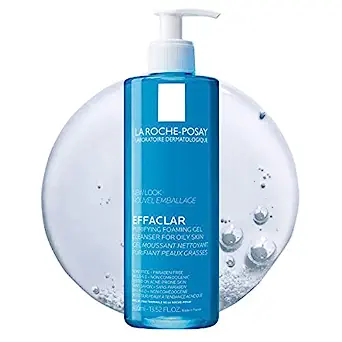
La Roche-Posay’s Effaclar Mat is specifically formulated for oily, acne-prone skin, offering a mattifying effect to reduce shine and the appearance of pores.
Key Ingredients:
- Sebulyse (mattifying agent)
- LHA (exfoliating agent)
| Pros | Cons |
|---|---|
| Targets excess oil and shine | May not be hydrating enough for combination skin |
| Non-comedogenic | |
| Oil-free |
2. Neutrogena Oil-Free Moisture for Combination Skin
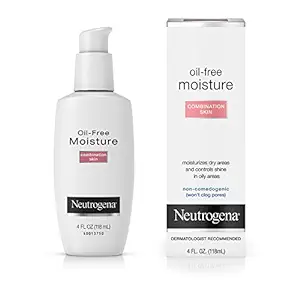
Neutrogena’s Oil-Free Moisture is a dual-action formula that moisturizes dry areas while controlling shine in oily areas.
Key Ingredients:
- Glycerin (humectant)
| Pros | Cons |
|---|---|
| Lightweight and non-greasy | Simple formula may not offer additional acne-fighting benefits |
| Alcohol-free |
3. Cetaphil PRO DermaControl Oil Absorbing Moisturizer SPF 30
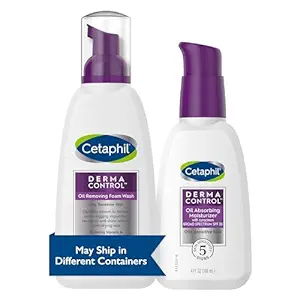
Cetaphil’s DermaControl Moisturizer is great for acne-prone skin that also requires sun protection.
Key Ingredients:
- Oleosome technology (for moisture without clogging pores)
- Broad-spectrum SPF 30
| Pros | Cons |
|---|---|
| Specifically formulated for acne-prone skin | Contains chemical sunscreens that may irritate extremely sensitive skin |
| Matte finish |
4. Aveeno Clear Complexion Daily Moisturizer
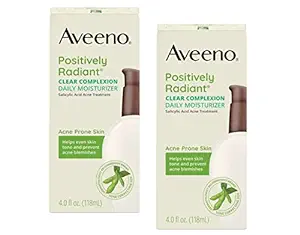
Aveeno’s Clear Complexion Daily Moisturizer is designed to help clear up blemishes and improve skin tone while providing moisture.
Key Ingredients:
- Salicylic acid (acne treatment)
- Soy complex (for tone and texture)
| Pros | Cons |
|---|---|
| Helps prevent breakouts | May be too drying for some users |
| Oil-free |
5. Paula’s Choice CLEAR Oil-Free Moisturizer
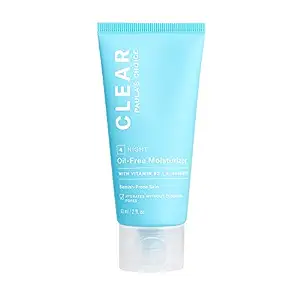
Paula’s Choice CLEAR Oil-Free Moisturizer provides lightweight hydration and is packed with skin-soothing ingredients to reduce redness.
Key Ingredients:
- Niacinamide (vitamin B3)
- Ceramides
| Pros | Cons |
|---|---|
| Calms redness and flakiness | Pricier than some drugstore options |
| Fragrance-free and non-irritating |
6. EltaMD UV Clear Broad-Spectrum SPF 46
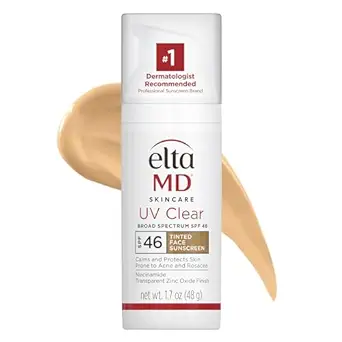
EltaMD’s UV Clear is a sunscreen and moisturizer in one, developed specifically for skin types prone to acne, rosacea, and hyperpigmentation.
Key Ingredients:
- Niacinamide
- Hyaluronic acid
- Zinc oxide (physical sunscreen)
| Pros | Cons |
|---|---|
| Protects against UVA and UVB rays | Higher price point |
| Contains ingredients beneficial for acne-prone skin |
7. Eucerin Redness Relief Night Creme
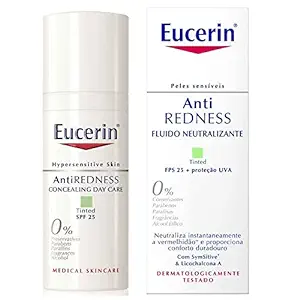
Eucerin Redness Relief Night Creme is a soothing, hydrating formula that is excellent for acne-prone skin that also deals with redness.
Key Ingredients:
- Licorice root extract (soothes redness)
- Glycerin (moisture)
| Pros | Cons |
|---|---|
| Gentle on sensitive skin | May not be suitable for very oily skin |
| Fragrance-free |
Important Note:
“When selecting a moisturizer for acne-prone skin, it’s essential to look for non-comedogenic products that won’t clog pores. Also, consider moisturizers with ingredients like salicylic acid or niacinamide that can help manage acne.”
Frequently Asked Questions About Moisturizer for Acne-Prone Skin
Why should I moisturize if I have acne-prone skin?
Moisturizing helps maintain your skin’s natural barrier, which is crucial for healthy skin. It can also prevent your skin from producing excess oil that might contribute to acne.
Can moisturizers cause acne?
Some moisturizers can cause acne if they contain ingredients that clog pores. Look for products labeled non-comedogenic, as they are formulated not to cause blocked pores.
What ingredients should I avoid in a moisturizer for acne-prone skin?
It’s generally advised to avoid heavy oils, silicones, and certain alcohols that can clog pores or dry out the skin, leading to more oil production. Ingredients like lanolin, petroleum, and mineral oil can also be problematic for some people.
What are the best ingredients in moisturizers for acne-prone skin?
Ingredients like hyaluronic acid, glycerin, salicylic acid, and niacinamide are beneficial for acne-prone skin. These ingredients offer hydration, control oil, and can help reduce inflammation.
How do I choose a moisturizer for my acne-prone skin?
Choose a moisturizer based on your specific skin concerns. If you’re also dealing with dryness, look for hydrating ingredients. If you’re trying to combat excessive oiliness, look for a mattifying moisturizer.
Should I moisturize at night if I have acne-prone skin?
Yes, nighttime is when the skin repairs itself, so using a non-comedogenic moisturizer can be very beneficial for acne-prone skin.
How can I test if a moisturizer is suitable for my acne-prone skin?
You can perform a patch test by applying a small amount of the product to a discreet area of your skin for a few days to see if you have any reactions.
Do gel moisturizers work better for acne-prone skin?
Gel moisturizers are often lighter and less likely to clog pores than heavy creams, making them a good option for acne-prone skin.
Is it possible for a moisturizer to treat acne?
Some moisturizers contain active ingredients like salicylic acid or benzoyl peroxide that can treat acne. However, they should be used as part of a broader skincare routine tailored to treating acne.
Can I use a moisturizer with SPF if I have acne-prone skin?
Yes, protecting your skin from the sun is crucial. Look for oil-free and non-comedogenic moisturizers with SPF designed for acne-prone skin.
Remember, while moisturizing is a critical step in skincare, it’s also important to use the right type of products that cater to your skin’s needs to manage acne effectively.
Conclusion
Acne-prone skin doesn’t have to miss out on the benefits of a good moisturizer. The products listed above are crafted to offer the hydration your skin needs without contributing to further breakouts. They often contain ingredients that can even help treat acne and improve the skin’s overall texture and appearance.
When trying out a new moisturizer, always patch test first to ensure it doesn’t irritate your skin. With the right product, you can maintain your skin’s moisture balance and support a clear, healthy complexion.